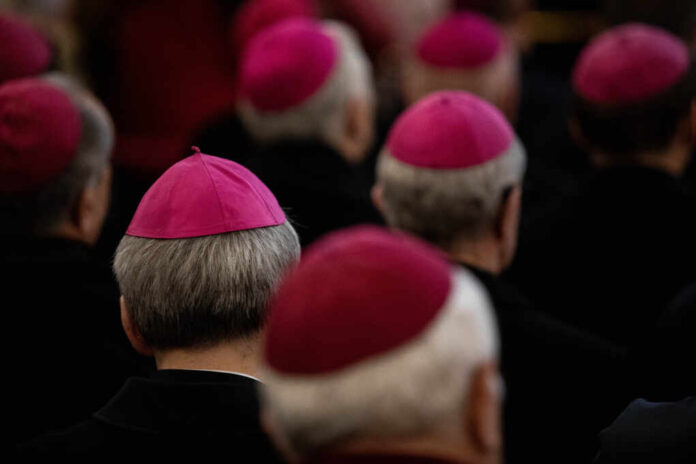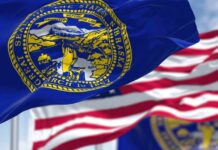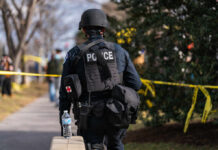
Catholic bishops in Washington state have sued over a new law that forces priests to violate the sacred seal of confession by reporting child abuse learned during the sacrament, setting up a high-stakes battle between religious liberty and child protection efforts.
At a Glance
- Washington’s bishops filed a lawsuit challenging Senate Bill 5375, which designates clergy as mandatory reporters of child abuse without exceptions for confessions
- The law could force priests to choose between obeying civil law or church doctrine that prohibits revealing confessional information
- Religious liberty law firm Becket is representing the bishops, arguing the law violates First Amendment protections
- The Justice Department has launched an investigation into the law, labeling it “anti-Catholic”
- Governor Bob Ferguson, himself Catholic, supports the law and says it’s about protecting children
Religious Freedom vs. Child Protection Law
The lawsuit, filed in the Western District of Washington and titled Etienne v. Ferguson, seeks to have the controversial law declared unconstitutional. Senate Bill 5375, signed by Democratic Governor Bob Ferguson, makes clergy mandatory reporters of child abuse without providing exceptions for the Catholic sacrament of confession, unlike similar laws in many other states. The bill subjects clergy who fail to report suspected abuse to criminal penalties, including potential imprisonment and fines, regardless of how the information was obtained.
Becket, a religious liberty law firm representing Washington’s bishops, argues the law specifically targets the Roman Catholic Church and forces priests to choose between following church teachings on the absolute confidentiality of confession or facing legal consequences. The suit claims the law violates both the First Amendment’s protection of religious freedom and the Equal Protection Clause of the 14th Amendment. Most states that designate clergy as mandatory reporters include exceptions for information obtained during confidential religious communications.
Historical Context and Catholic Teaching
At the center of this legal battle is the Catholic Church’s ancient practice of the Seal of Confession, which the Catechism of the Catholic Church holds as absolutely inviolable. Catholic doctrine strictly forbids priests from divulging information obtained during confession under any circumstances. This confidentiality has been a cornerstone of Catholic sacramental practice for centuries, with priests historically choosing imprisonment or even death rather than breaking the seal of confession.
The Washington State Catholic Conference had previously supported a version of the bill that included exceptions for confession, showing their willingness to cooperate with child protection efforts while preserving religious practices. Bishops emphasize that priests already report abuse learned through other means outside the confessional, but draw the line at breaking the seal of confession. They argue the law creates an impossible choice for priests between violating sacred vows or facing criminal prosecution.
Political and Legal Implications
The Trump administration’s Justice Department has launched an investigation into the Washington law, labeling it “anti-Catholic.” This federal scrutiny adds another layer of complexity to the legal battle. The department plans to investigate potential conflicts between the state law and the First Amendment’s protection of religious freedom. The outcome could have far-reaching implications for similar legislation across the country and for the relationship between religious institutions and government regulation.
Governor Ferguson, who identifies as Catholic, has defended the law, emphasizing its importance for child protection. “I’m disappointed my Church is filing a federal lawsuit to protect individuals who abuse kids,” Ferguson stated. The governor added, “I’m very familiar with it. Been to confession, myself. I felt this was important legislation for protecting kids.” While the law was reportedly motivated by reports of child sexual abuse cover-ups by Jehovah’s Witnesses, its application extends to all religious denominations and includes other mandatory reporters like school employees and healthcare workers.
Broader Implications for Religious Liberty
This case represents one of the most direct challenges to Catholic sacramental practice in recent American legal history. The outcome could set precedents for how courts balance religious liberty against compelling state interests in protecting vulnerable populations. Legal experts note that confession in the Catholic Church often involves private, sometimes anonymous, communication of sins to a priest, making enforcement of the law particularly problematic from both practical and constitutional perspectives.
As the legal battle unfolds, Catholics across Washington face uncertainty about a fundamental religious practice. The case highlights the tension between the state’s legitimate interest in protecting children and constitutional guarantees of religious freedom. For many observers, the question is whether alternative approaches might achieve child protection goals without directly compelling clergy to violate their religious obligations—a balance that other states have attempted to strike in their mandatory reporting laws.

























